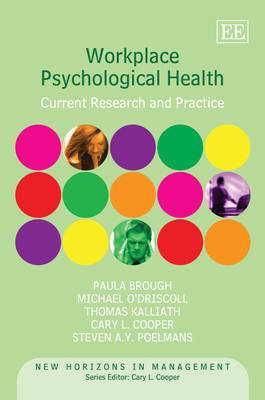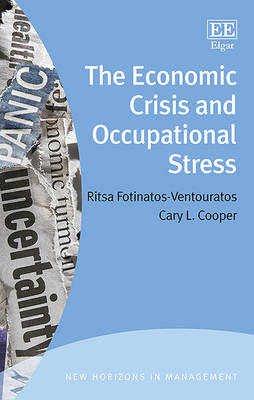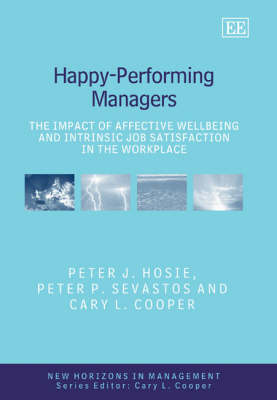New Horizons in Management
3 total works
Workplace Psychological Health
by Paula Brough, Michael O'Driscoll, Thomas Kalliath, Cary Cooper, and Steven Poelmans
Each of the eleven original chapters describes an essential topic within occupational health psychology, all focusing on the most progressive and contemporary international research. Included are chapters on subjects with established research history, for example occupational stress and job satisfaction, alongside newly emerging additions such as work addiction and executive coaching.
This book will be an invaluable and unique reference source for organizational health academics, researchers and postgraduate students. Workplace Psychological Health is also offered as a useful companion text to human resource professionals and practitioners wanting to maintain continuing professional development.
The Economic Crisis and Occupational Stress
by Ritsa Fotinatos-Ventouratos and Cary Cooper
Examining the impact of the recession on organizations and individuals at work, this book explores the long lasting effect the crisis will have on workplaces for the future. The book is divided into three parts: in Part I, a historical economic review is provided for the reader. In Part II, an assessment is given on how occupational stress in the 21st Century has impacted the working environment in a host of negative ways. In Part III, the authors address unique coping strategies to be applied at the individual, organizational and societal levels in the future.
An insightful and thorough account of how the economic crisis has unfolded on an international scale is presented and the profound psychological impact that this recession has had on the workplace assessed. Such comprehension will be invaluable for students and academics in the social sciences, organizational and social psychologists and practitioners of occupational health.
Happy-Performing Managers
by Peter J. Hosie, Peter P. Sevastos, and Cary Cooper
The authors test a kindred idea - the 'happy-performing managers' proposition, using advanced statistical techniques. Performance is measured to a previously unachievable level. New empirical evidence is used to predict how affective wellbeing and intrinsic job satisfaction influences managers' contextual and task performance. These findings are argued to have significantly progressed our understanding of what underpins human performance at work.
The book prescribes how managers' jobs might be changed to enhance or avoid a decline in happiness because managers' performance is impacting as never before on organisational productivity and the economic prosperity of nation-states. Extraordinary shifts in the global corporate environment mean managers' 'personal troubles' have now become 'public concerns'. An emerging movement to Positive Organisational Scholarship is countering such forces by developing ways to create positive human and organisational wellbeing.
Happy-Performing Managers will be invaluable to academics, postgraduate students, human resource practitioners, executives and managers who are interested in gaining a deeper understanding of the factors that influence human performance in the workplace.


